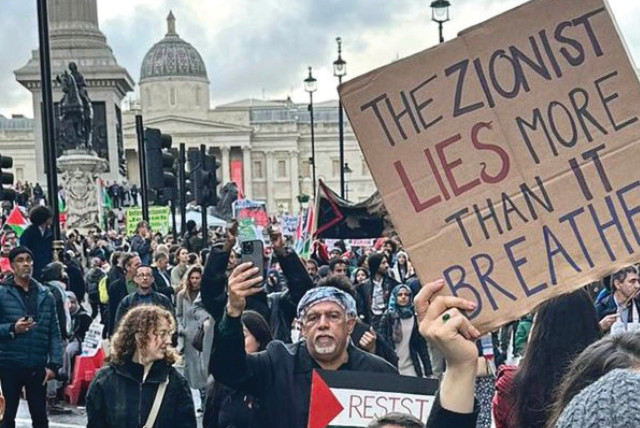Hamas supporters vs advancement of knowledge - opinion

The pro-Hamas movement isn’t advancing justice or peace. It’s reviving the oldest form of prejudice in the newest of guises, undermining the very pursuit of knowledge on which we all depend.
In the grand tradition of suppressing thought – from the Catholic Church’s trial of Galileo to the Nazi book burnings and Mao’s Cultural Revolution – today’s pro-Hamas movement seeks to stifle intellectual freedom under the guise of moral righteousness.
The latest victims? Israeli scholars and researchers, whose work is increasingly sidelined by international colleagues wielding boycotts as weapons.
This isn’t new. Jewish scholars have long been targets of antisemitism. Under the Nazis, Germany purged its intellectuals – scientists, writers, and artists – branding their work as “degenerate.” We know where that led.
Today, Israeli academics are ostracized not for the content of their research but for their affiliation with Israeli institutions. Boycotters claim this makes them complicit in Israel’s military actions against Hamas, the terrorist organization responsible for the atrocities of October 7.
The result? Rejected publications, rescinded invitations to conferences, and professional isolation.
Let’s be clear: Refusing to publish a paper on cancer treatments or climate innovation because its author is Israeli doesn’t save a single life in Gaza. What it does is erode the bedrock principle of academic freedom, hinder global progress, and delay potential breakthroughs that could benefit humanity.
Israel is at war, fighting an enemy ideologically committed to its destruction. But it is not alone in facing armed conflict. According to the Geneva Academy of International Humanitarian Law, 110 armed conflicts are raging across the globe, including 45 in the Middle East and North Africa. Are the academics or scientists of these nations subjected to similar boycotts? The answer is no. This hypocrisy is aimed squarely – and exclusively – at Israel.
And it’s taking a toll. A late 2023 survey by The Israel Young Academy and Afik in Academia revealed the growing strain on Israeli faculty. Of the 1,015 respondents – half from natural sciences, medicine, or engineering – many reported disrupted research, canceled collaborations, and personal harm. Early-career academics and women bore the brunt of the impact, as did those in vulnerable disciplines like the social sciences.
Anti-Israel sentiments
Consider this chilling anecdote: Liat Ayalon, a professor at Bar-Ilan University, submitted an article to a journal she’d worked with for two decades. The study explored the effects of Hamas attacks on older Israelis. The editor, sympathetic but fearful, asked her to withdraw it, citing pervasive anti-Israel sentiments.
Although another journal eventually published the research, the incident is a stark reminder of how far-reaching this intellectual ostracism has become.
What’s at stake here isn’t just fairness to Israeli academics. It’s the principle of intellectual freedom itself – the idea that knowledge must transcend politics, nationalities, and borders. If we allow academic boycotts to flourish unchecked, we don’t just harm Israel. We jeopardize the free flow of ideas that underpins democratic societies and drives global progress.
The pro-Hamas movement isn’t advancing justice or peace. It’s reviving the oldest form of prejudice in the newest of guises, undermining the very pursuit of knowledge on which we all depend.
The writer is the host of The Van Leer Institute Series on Ideas podcast.
Jerusalem Post Store
`; document.getElementById("linkPremium").innerHTML = cont; var divWithLink = document.getElementById("premium-link"); if (divWithLink !== null && divWithLink !== 'undefined') { divWithLink.style.border = "solid 1px #cb0f3e"; divWithLink.style.textAlign = "center"; divWithLink.style.marginBottom = "15px"; divWithLink.style.marginTop = "15px"; divWithLink.style.width = "100%"; divWithLink.style.backgroundColor = "#122952"; divWithLink.style.color = "#ffffff"; divWithLink.style.lineHeight = "1.5"; } } (function (v, i) { });

